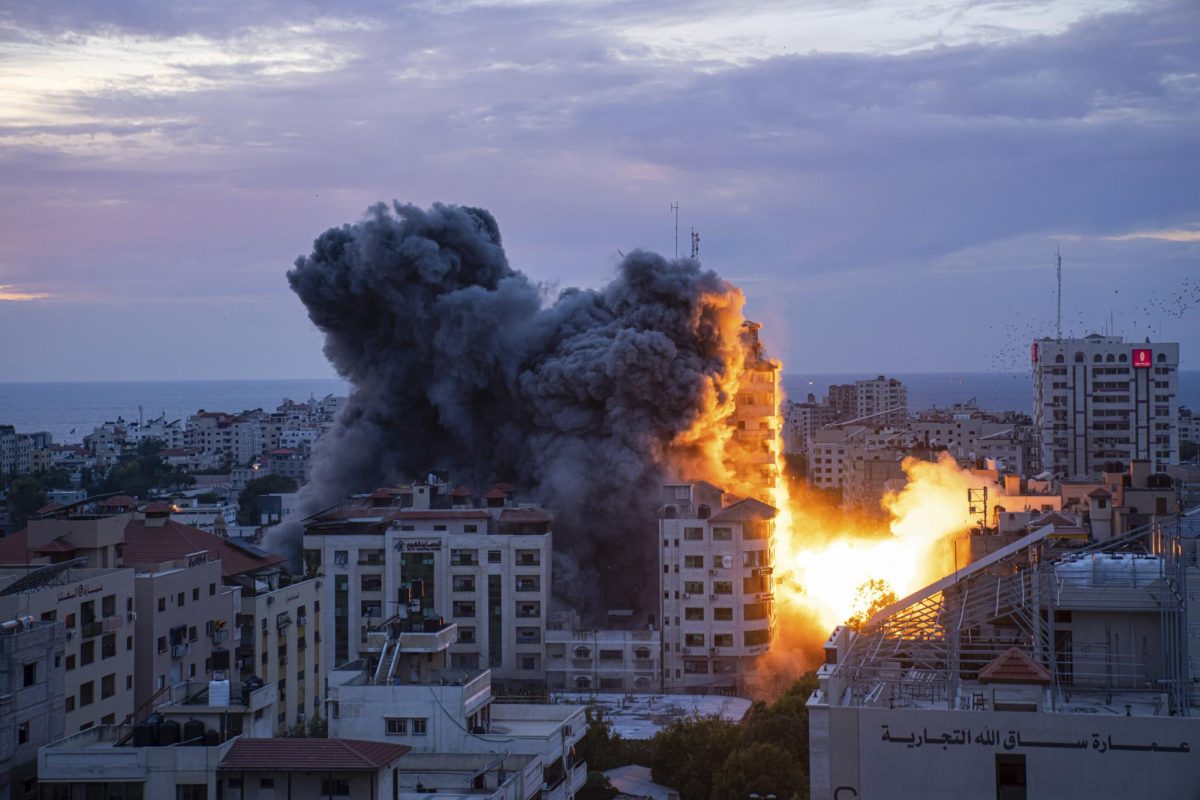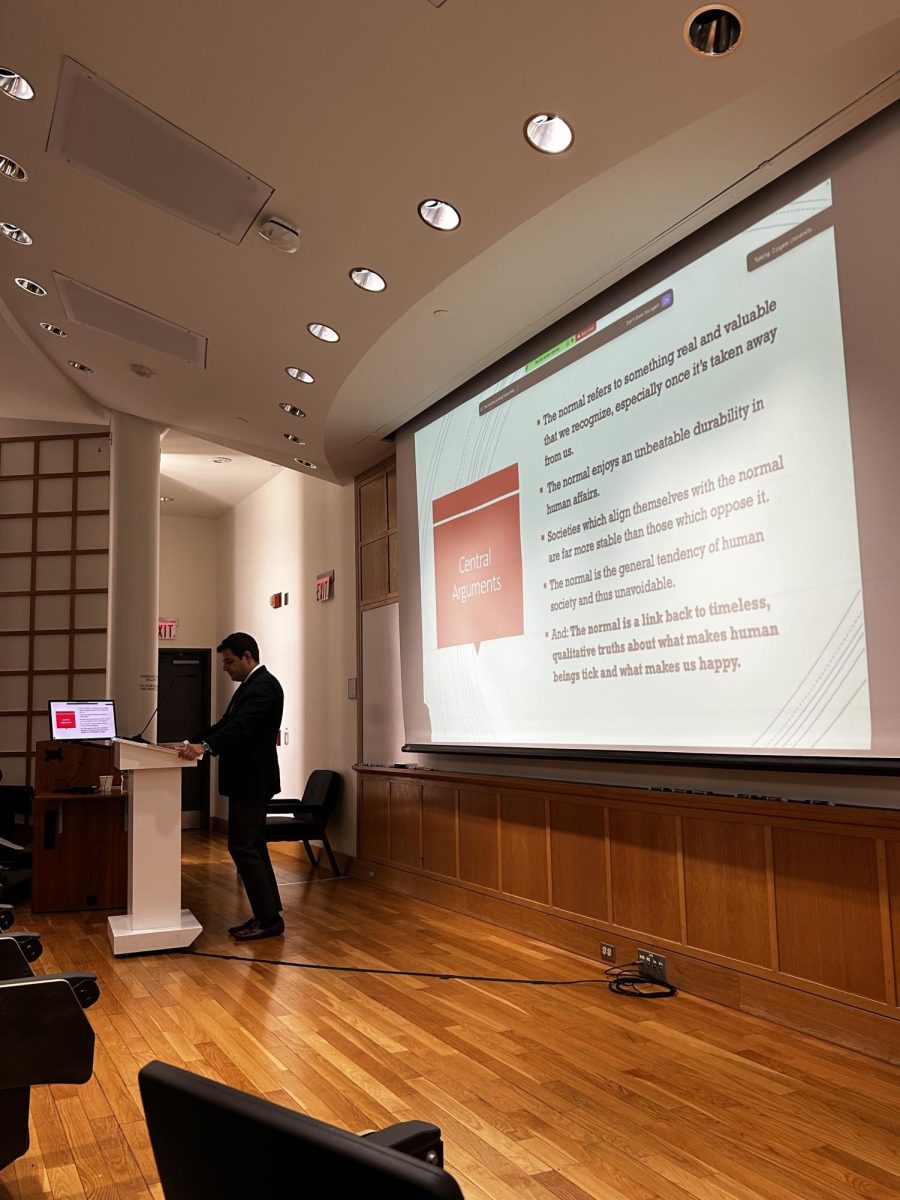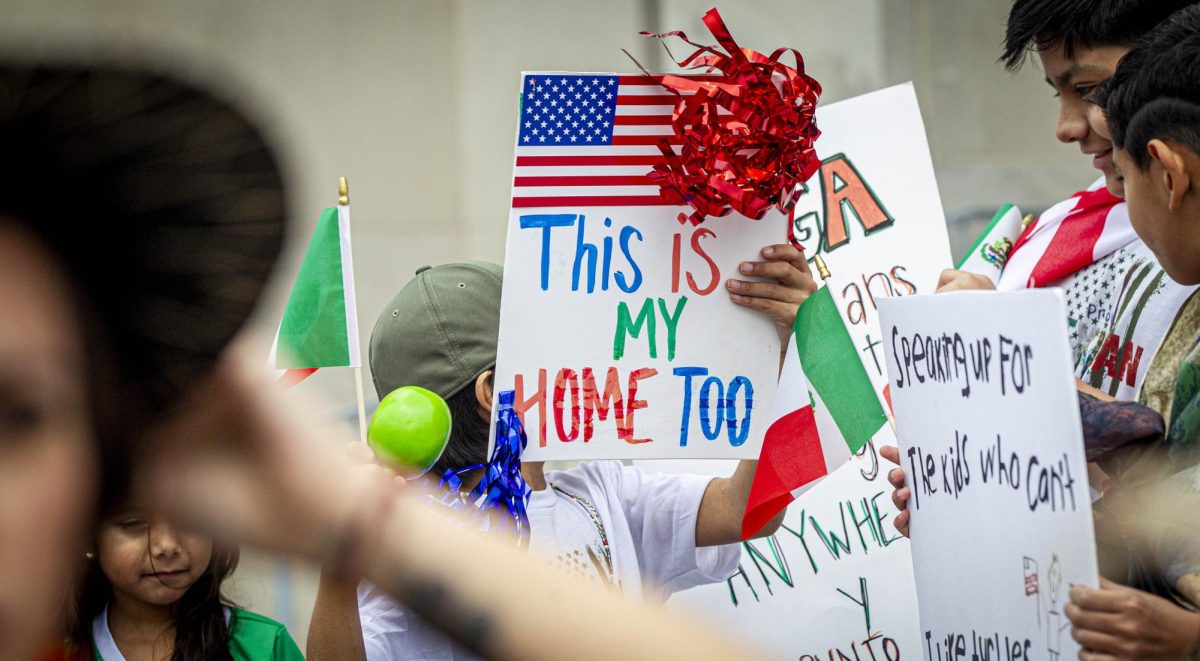There are no right answers in war, least of all this one.
On Oct. 7, the terrorist group Hamas invaded southern Israel, massacring Israelis in their homes, on kibbutzim and at a music festival. I feel it’s important to state that such cruelty is inexcusable in any context — terrorism is not a righteous struggle against oppression. This is what’s puzzling about the recent rhetoric of those claiming to represent the Palestinian cause, most notably the recent events at Harvard University and Cornell University. These incidents either showcase an inability to grasp the platform of Palestinian liberation or are exercises in blatant antisemitism. I would argue the latter, but I encourage you to research the referenced instances and decide for yourself.
In terms of the current war, let’s make a few things clear. Hamas is a terrorist organization singularly motivated by the destruction of the Jewish state and the Jewish people; I would encourage readers to reference the organization’s mission statement, located on The Avalon Project website of the Yale Law School Lillian Goldman Law Library. On Oct. 7, Hamas’ cowardice and sadism were on full display. Their strategy is as shameful as it is cynical; by striking against innocents before retreating into their network of underground tunnels, as reported by The Washington Post, Hamas is letting millions of struggling Gazans, who, for years, have suffered under both terrorist rule and the scorn of the Israeli government, pay the price in blood.
As Israel begins a ground invasion of the Gaza Strip, as reported by CNN, the nation has a variety of complicated choices to make. Hamas, (and, by proxy, Iran, who supports the group, per The Wall Street Journal) have forced Israel to confront, among others, the twofold dilemmas of military action and overall regional instability. The former is clear enough: a full-scale ground siege guarantees an exacerbated humanitarian crisis in Gaza. The latter issue of regional stability, however, could have long-term implications for Israeli security.
To that end, in its ongoing assault on Gaza, I believe that Israel, being the dominant military force in the Middle East, per Axios, best prioritizes long-term security through restraint. I recognize the difficulty of choosing this mentality — nearly 240 hostages are imprisoned throughout Gaza City, and Israel is hurting. Additionally, even before the most recent attacks, Israel’s current government has shown a frustrating disinterest in working toward a two-state solution. Israeli Prime Minister Benjamin Netanyahu is a corrupt figure, per The New Yorker, who, in his continual rightward shift, has expanded Israeli settlement and Palestinian displacement in the West Bank, according to Al Jazeera. These initiatives are dangerous and unjust. Although reducing Gaza to rubble will only exacerbate regional violence and humanitarian crises, Netanyahu’s political conduct leaves very little confidence that he will work to limit casualties in Gaza.
This is also a war of public perception. By exercising restraint, Israel will play the war out of Hamas and Iran’s hands in that respect as well. News cycles are short, and so are attention spans. So far, it’s clear to me that Hamas has benefitted from Western news that quickly pivoted away from the atrocities of Hamas’ initial attack on Oct. 7. Coverage of humanitarian crises is essential, and limiting the amount of civilian deaths in Gaza prevents Hamas from shifting sympathies away from Israel. I believe that a longer, specialized operation aimed and rebranded as a campaign to save hostages, rather than a mission to wipe Hamas “off the face of the Earth,” as reported by Reuters, will recenter Israel as a moral actor on the world stage. While such an operation will not expel Hamas from its territorial holdings as quickly as Israel may hope, a measured response would be a crucial step in undoing the overarching gamble of Oct. 7. Iran is already playing the long game. Through its regional proxy, Iran is wagering its future on the brutality of Israel’s response and its potential to turn enough Arab and Western states against the normalization agreement currently in the works between Saudi Arabia and Israel. That agreement is imperative to securing Israeli security in the long term, and Israel needs to keep it intact.
But let’s stay in the Levant for now.
The details and psyche of this war are harrowing. Because Hamas leadership takes shelter and stockpiles weapons in schools and hospitals, according to The United Nations Relief and Works Agency for Palestine Refugees in the Near East (UNRWA), hundreds of Gazans are killed in civilian settings every day, as per AP News. I will reiterate: Israel is not fighting a war against Palestinian liberation, but an antisemitic terrorist organization that uses Gazan civilians as human shields, per The Guardian.
Acknowledging both this and the increasingly hawkish aims of Benjamin Netanyahu’s government, I am depressed about the state of the Middle East and the world as a whole. Yet, I am unwavering in my belief that Israel has a right to exist and to defend itself. As the war progresses, Israel must understand that Hamas’ sadism does not absolve Israel of guilt for the mass deaths of Gazan civilians. It is my view that understanding this fact (and integrating it into a more seasoned military response) can be used to the nation’s long-term advantage. To me, this much is clear: If Israel flattens Gaza today, it will be rid of the moral backing of its defense. The Saudi normalization deal will fall through. Iran will triumph. Thousands more innocent Palestinians will lose their lives.
In the end, the sentiment remains, and hopelessness pervades. There are no right answers in war.

















Gregory Groth • Nov 10, 2023 at 6:28 pm
Good commentary, Eli. You’ve struck a good balance and are correct: there are no entirely right answers in war. As Aeschylus said, “The first casualty of war is the truth.”